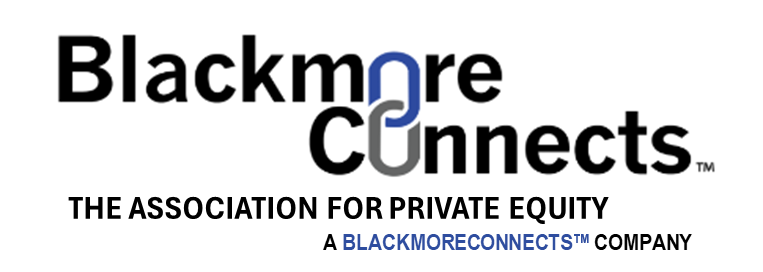Transitioning into Private Equity in a Hidden Recession: Why Upskilling is Vital for Executives
Written By: Gerald O’Dwyer IIThe PE Guru — BlackmoreConnects, Inc | November 11, 2024
The Quiet Storm: Navigating Today’s Economic Reality
Executives accustomed to the highs of a booming economy face a harsher reality in today’s environment. Economic indicators hint that we may already be in a recession, one potentially deeper and more insidious than the last. Official data points, like inflation and GDP, may not fully capture the scope of today’s challenges, especially for professionals aiming to shift into private equity (PE).
Economic Red Flags:
- Inflation Misreporting: Official statistics claim a 21% increase in prices since COVID-19, but essentials like fast food have surged 35-50%. Underreported inflation masks real financial strain for consumers and businesses alike.
- GDP Shadows: If inflation is understated, then GDP growth is equally inflated. True economic growth may be negative, signaling a downturn.
- Consumer Distress Signals: Rising credit card reliance for essentials and home downsizing reveal significant financial pressure, often unseen in traditional metrics.
- Asset Illusions: Elevated asset prices give a false sense of prosperity. As consumer purchasing power diminishes, this dynamic echoes the early stages of historical inflation-driven recessions.
Amidst this context, executives must rethink career strategies with an urgency born of economic necessity.
Why the Usual Executive Job Search is Risky Now
Traditional job hunting tactics are particularly risky in this climate:
- Scarcity of Roles: Recession-driven caution means fewer companies are hiring.
- Intense Competition: Executives from varied backgrounds are scrambling for the same limited roles.
- Weaker Bargaining Power: In today’s market, salary and benefits negotiations are more challenging.
- Prolonged Searches: It takes longer to find suitable roles, delaying career momentum and financial security.
The Private Equity Path: A Strategic Shift for Career Resilience
For executives, PE offers an alternative that aligns with long-term growth and adaptability, regardless of the economic climate. Here’s why PE may be the optimal path:
- Diverse and High-Value Opportunities: PE firms need advisors, board members, consultants, and operational partners.
- Financial Potential: Equity ownership in PE-backed companies offers executives substantial wealth-building opportunities, often exceeding traditional roles.
- Built-In Resilience: PE firms are designed for long-term value creation. Even amid market downturns, their strategic outlook provides a stability and growth focus that can withstand recessions better than other sectors.
Strategies for a Targeted PE Career Shift
A proactive, multifaceted approach is essential to transition into PE successfully:
- Radically Expand Your Network
- Professional Affiliations: Join associations specific to PE, like the ACG, to access exclusive events and insights.
- Strategic Online Networking: Utilize LinkedIn, PitchBook, and Cyndx to connect with PE professionals and get on their radar.
- Virtual Engagement: Attend webinars and online networking events that are increasingly popular for connecting with key decision-makers.
- Develop PE-Specific Skills
- Continuous Education: Upskill with courses in financial analysis, valuation, and PE-specific strategies.
- Certifications: Credentials in investment analysis, corporate finance, and risk assessment can set you apart and make your profile instantly relevant.
- Leverage a Targeted Outreach Plan
- Research & Tailor: Use tools like PitchBook to pinpoint PE firms that align with your industry expertise, ensuring your outreach is impactful and well-targeted.
- Custom Communication: Craft emails that resonate by addressing how your skills directly translate into value for PE firms. Focus on the metrics they care about, like growth and return potential.
- Showcase Your Unique Value Proposition
- Create a Portfolio of Achievements: Highlight not only past successes but also how your expertise can specifically benefit portfolio companies.
- Strategic Insights: Emphasize how you’ve driven growth, managed turnarounds, or increased efficiency in ways that align with PE goals.
Emphasizing the Urgency to Act Now
In a hidden recession, the opportunity cost of waiting is high. Executives must adopt a forward-thinking approach to position themselves competitively in the PE world.
- Recession Realities
- Acknowledging Underlying Risks: Today’s economic uncertainties demand that executives act decisively to avoid career stagnation.
- Inflation’s Silent Erosion: With inflation impacting purchasing power more than metrics reveal, failing to pivot quickly could have long-term repercussions.
- Start Today
- Building Momentum: Aim to have 200 PE interactions annually, not just for immediate job prospects but for long-term visibility and opportunities.
- Skill Development: Invest in learning PE strategies and financial skills now to keep pace with the competition and avoid lagging behind.
- Investing in PE Knowledge Pays Dividends
- Equity Stakes and Financial Growth: PE isn’t just about job stability; it’s about potential wealth creation through equity participation, something rarely available in traditional roles.
- Stability Amidst Uncertainty: The PE field focuses on value creation and is often less susceptible to recessionary pressures, offering a degree of security in a turbulent economy.
Conclusion: The Cost of Waiting is Too High
For executives eyeing a career in private equity, there’s no time to lose. Building a PE network, enhancing relevant skills, and understanding the nuances of this industry are now essential steps to stay competitive. BlackmoreConnects offers the network, knowledge, and resources to help you make this critical transition successfully. In a hidden recession, securing your career trajectory through proactive engagement and upskilling in PE is not just advisable—it’s essential. By acting now, executives can not only survive but thrive amidst today’s economic uncertainties, paving the way for a robust and rewarding future in private equity.
